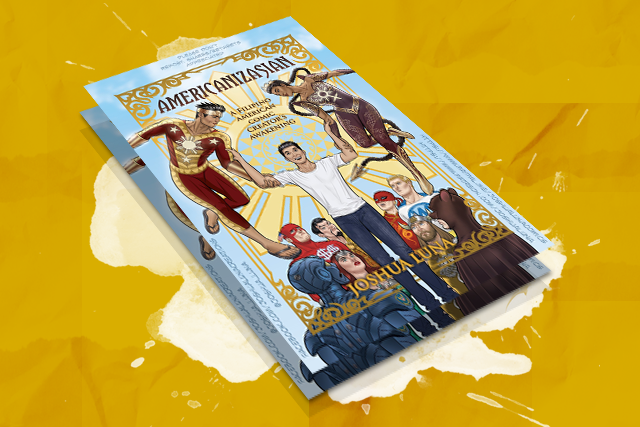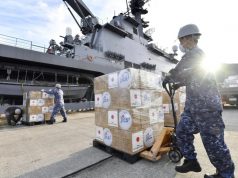
A Filipino-American comic book creator shared a comic strip on the controversial global garbage trade of wealthy countries from the West to Southeast Asian nations such as the Philippines.
This piece was part of Joshua Luna’s comic book “Americanizasian,” a collection of online comic strips about Filipino-American and Asian-American identity and experiences.
Luna shared a comic strip called “Waste Supremacy” on July 30 and it soon made rounds more than 18,000 times.
It was a caricature on Southeast Asia’s rejection of different forms of waste from wealthier western countries such as the United States, Canada, the United Kingdom and France.
Many wealthy countries—particularly Western, white-dominated ones—treat Southeast Asia as their playground and dumping ground, then have the nerve to blame Southeast Asian countries for the poverty & pollution they helped create. 1/
(Please don't repost my art. RTs appreciated.) pic.twitter.com/RRC3YRFAfH
— Joshua Luna (@Joshua_Luna) July 29, 2019
“These countries—which enrich themselves by devastating SEA through war and colonization, & by exploiting its labor & resources—have the capacity to process contaminated plastic waste, but because it’s expensive, they instead export the burden to SEA, which has far [fewer] means,” Luna said in the thread.
Moreover, he also likened these countries to those notorious for exploiting residents from Asia.
These are corporate sweatshop owners, “begpackers” or tourists who beg on the streets for the sake of travel and sexpats or those who engage in sex tourism.
“These are only recent examples of the ongoing colonization of SEA. Southeast Asians around the world have long been regulated to positions of service/servitude such as maids, nannies, & nurses. We’re expected to clean up privileged people’s trash because we are seen as trash,” he said.
Luna further highlighted that the global problem of climate change is not felt equally.
“It’s not enough to call it a crisis—it’s climate apartheid. We’re not all suffering equally & that’s by design. Southeast Asia & other countries who are majority Brown or Black are being hit first and worst thanks to white/waste supremacy,” he said.
According to his Facebook profile, Luna worked with his brother Jonathan Luna on comic books such as “Ultra” and “The Sword,” which were published by US-based Image Comics.
His first solo debut called “Whispers” was published by the same company in 2012.
For this comic strip collection, Luna appealed to his followers through a lengthy post to suggest a new publisher for it.
He noted that he hoped the new agency would be more versatile on stories about the people of color.
For Asian Pacific American Heritage Month (#APAHM), I had hoped to announce the release date of AMERICANIZASIAN, a book…
Posted by Joshua Luna on Friday, May 31, 2019
Global trash trade
Rich countries have been shipping plastic trash to poorer Asian countries, specifically to China, for more than 25 years.
European countries are reportedly the biggest exporter of plastic waste while the United States is the largest single-country source.
China imported 45%, earning the moniker the world’s wastebasket.
However, in 2019, China suddenly withdrew from this system due to environmental concerns.
This new policy puts Western countries in a quandary on where to dispose of their plastic waste.
“It just takes time. It will take time to develop and expand domestic systems and markets and to change product design,” said engineering professor Jenna Jambeck to National Geographic.
Without China’s help, the developing world resorted to exporting their trash to other countries with lax regulations.
Such imports consequently have adverse effects on the recipient’s environment and the livelihoods of their residents.
“The plastic waste is burying agricultural communities, literally transforming what used to be pristine environments into toxic dumpsites,” said Von Hernandez of Break Free from Plastic organization.
Some have started to push back against this unhealthy trade, such as the Philippines and Malaysia.
This 2019, the Philippines was successful in sending back a cargo ship loaded with 69 containers of garbage to Canada and another 51 containers to South Korea.
Malaysia was also able to return five containers to Spain.









